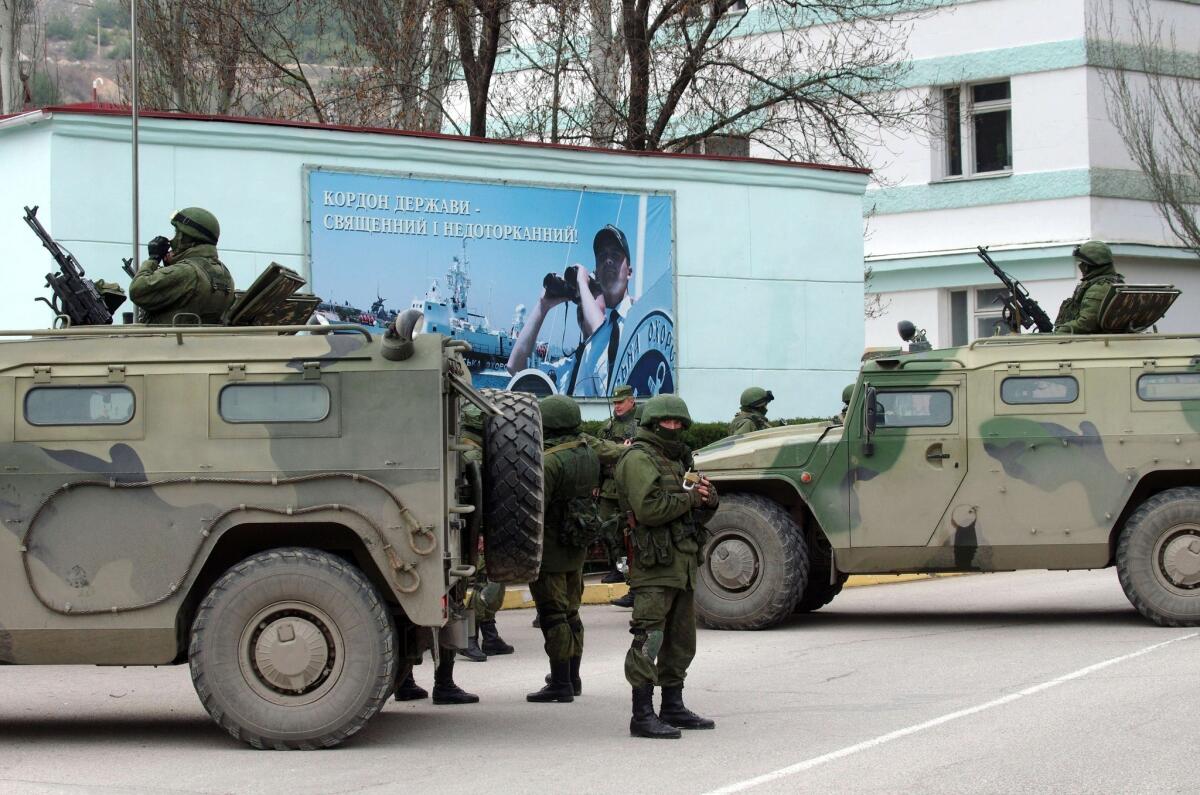American intelligence agencies disagreed on Russia threat in Ukraine

- Share via
WASHINGTON -- U.S. intelligence agencies disagreed on whether Russian President Vladimir Putin would order military intervention last week in Ukraine, officials said Tuesday, and the House Intelligence Committee is examining what caused the differing analyses.
“We have begun a review to see what pieces were missing here,” said Mike Rogers (R-Mich.) who chairs the House Intelligence Committee.
Lawmakers who read the competing intelligence analyses say they were given little guidance of what to believe, and were surprised last Friday when the Russians began taking control of border posts, airports and regional government facilities in Crimea.
A classified report earlier in the week by the Pentagon’s Defense Intelligence Agency, responsible for collecting and analyzing military intelligence, concluded that Russian military drills with 150,000 troops near the Ukrainian border would not provide a pretext for sending troops into Crimea.
A separate classified analysis from the CIA said that some signs pointed to a Russian intervention, but that it did not expect one, the officials said.
A closed-door briefing to members of Congress last Thursday by Robert Cardillo, deputy director of national intelligence, also did not suggest military action was imminent, according to officials who asked not to be identified discussing a classified briefing.
“I think the Russian steps came as a surprise,” said Rep. Adam B. Schiff (D-Burbank), an Intelligence Committee member. “I think in part it comes from trying to predict a fairly unpredictable [Russian President] Vladimir Putin.” Rep. Jim Himes (D-Conn.), another committee member, offered a similar analysis. “In intelligence, the hardest thing to get at is the intent of a foreign actor, and I don’t know any good way to know what Putin is thinking at 3 in the morning.”
The DIA declined comment, while a CIA spokesman defended that agency’s analysis.
“Since the beginning of the political unrest in Ukraine, the CIA has regularly updated policymakers to ensure they have an accurate and timely picture of the unfolding crisis,” spokesman Todd Ebitz said. “These updates have included warnings of possible scenarios for a Russian military intervention in Ukraine. Any suggestion otherwise is flat wrong.”
Shawn Turner, a spokesman for James R. Clapper, the director of national intelligence, said the agency welcomed the House committee review. On Monday, Turner had said “any suggestion that there were intelligence shortcomings related to the situation in Ukraine are uninformed and misleading.”
ken.dilanian@latimes.com
More to Read
Sign up for Essential California
The most important California stories and recommendations in your inbox every morning.
You may occasionally receive promotional content from the Los Angeles Times.











